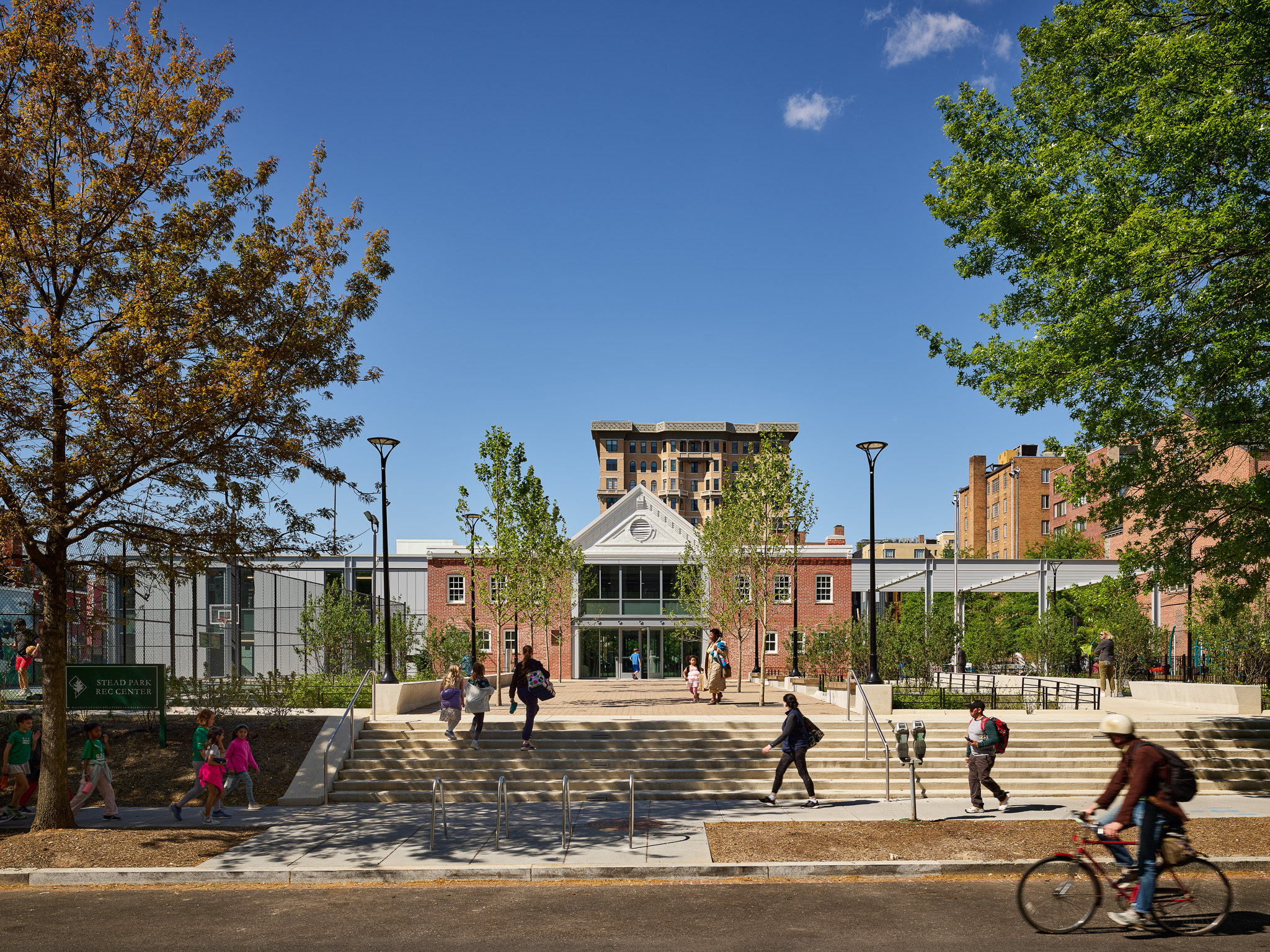-
Date
Friday, October 24 2025
-
Time
12:00pm - 1:00pm
-
Location
Virtual (via zoom)
Join the design and construction team behind Stead Park Recreation Center for an engaging learning session that explores the transformation of a historic carriage house into a modern, net-zero ready community facility in the heart of Dupont Circle. This session will highlight the project’s unique challenges and innovative solutions, from navigating historic preservation requirements to implementing high-performance building systems. Attendees will gain insight into sustainable design strategies, adaptive reuse practices, and how the team balanced community needs with ambitious energy goals, while ensuring health, safety, accessibility, resilience, and lasting value for the broader community and future generations. This case study offers lessons applicable to a wide range of projects.
Presented by:
Gabe Oliver
With over two decades of experience in design and construction, Gabe brings a collaborative, solutions-oriented approach to project planning and delivery. As Partner and Senior Vice President at GCS-SIGAL Gabe is known for fostering strong partnerships with clients, designers, and trade contractors, emphasizing early alignment and strategic planning to set projects up for long-term success. His leadership has contributed to numerous award-winning projects across the region.
Teresa Hamm-Modley
Teresa is a licensed architect with VMDO DC, a firm known for its thoughtful, community-centered design. With a background in construction and passive house design, Teresa’s passion for combining high performance details and energy-efficient strategies with transformative design has been translated into numerous local projects throughout the DMV. Her work reflects a unique blend of rigor and empathy, making her a trusted advocate for communities and a leader in shaping spaces that inspire.
Learning Objectives:
- Understand the DC’s energy standards and historic preservation requirements and learn how to navigate achieving both with a cohesive high-performance design.
- Anticipate challenges of working with existing buildings on a tight site and identify relevant design solutions that prioritize energy use reduction, smart building systems, and proper envelope treatment to meet net zero energy requirements.
- Discover simple design strategies that are available pathways to meeting Net-Zero energy using limited public budgets.
- Identify challenges and solutions to achieving net zero energy details in the field and thoughtful quality control measures and team collaboration throughout construction.
HSW Justification:
This course qualifies as HSW by addressing energy-efficient design strategies that improve safety, occupant health, and building performance. It also covers envelope, systems, and construction practices that support durability and sustainability.

